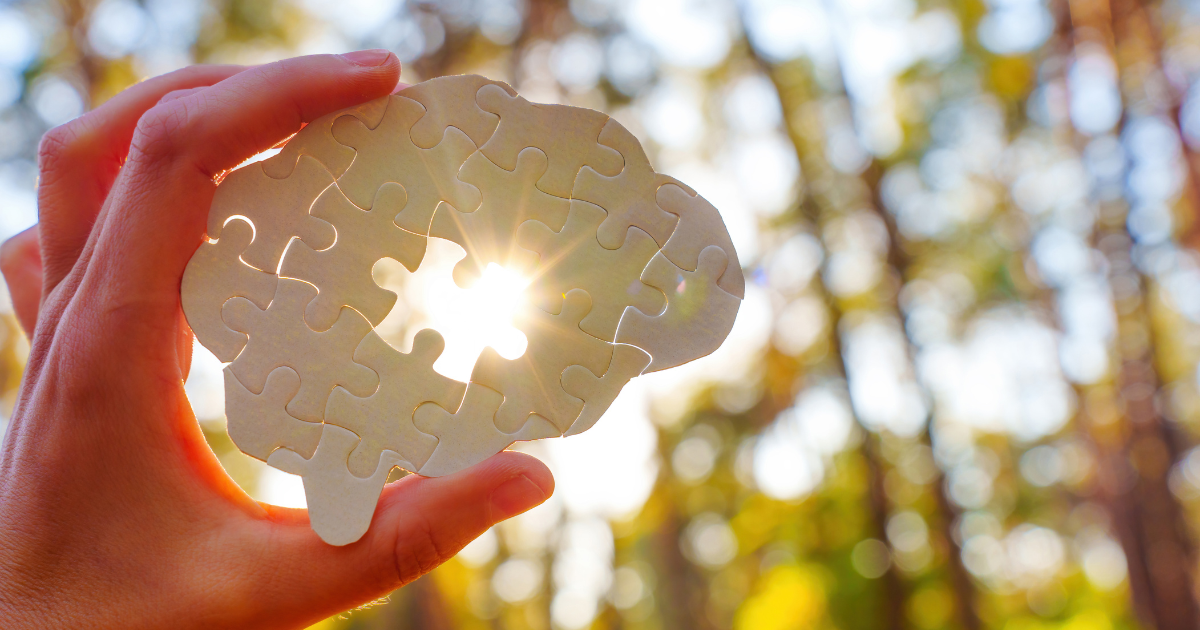
Cognitive decline is when the brain is not working quite as well as it used to. It might show up as slower thinking, mild forgetfulness, or trouble focusing. While some changes can be a normal part of aging, others may signal a deeper shift in how the brain functions.
That is why prevention matters. How you take care of your body and mind every day plays a big role in your long-term brain health.
The Often-Overlooked Pillars of Brain Health
When people talk about keeping the brain healthy, they usually mention things like eating well, exercising, or doing puzzles.
However, a few other habits play a significant role in how the brain works every day. Here are four lifestyle areas that quietly support memory, focus, and mood as we age.
1. Quality Sleep
A good night’s sleep does more than just help you feel rested. It is when the brain does its cleanup work.
While you sleep, your brain sorts and stores memories. It also clears out waste and toxins that build up during the day. Without enough deep sleep, thinking can feel foggy and memory starts to slip.
If falling or staying asleep is tough, here are a few simple changes that can help:
- Stick to a regular bedtime and wake-up time (even on weekends).
- Limit naps during the day, especially in the late afternoon.
- Use soft lighting in the evening to signal to the brain it is time to wind down.
- Turn off screens (TVs, phones, tablets) at least an hour before bed.
2. Stress Reduction
Stress is part of life. But when it lingers too long, it affects more than just your mood.
Ongoing stress raises cortisol, a hormone that can damage parts of the brain linked to memory and learning. That is why finding ways to feel calm matters for brain health, especially for seniors and caregivers who face daily challenges.
Here are a few calming habits to try:
- Deep breathing: Try inhaling for four counts, holding for four, then exhaling for four.
- Soft music: Calming background music helps reduce anxiety and increase focus.
- Mindfulness: A short moment of stillness (like noticing your breath or surroundings) can ease mental tension. Even five quiet minutes can make a difference.
3. Hydration
It is easy to overlook water, but the brain needs it to think clearly. Mild dehydration can cause confusion, tiredness, and memory slips, especially in older adults.
Most seniors should aim for about 6 to 8 cups of fluid daily, but this can vary based on medications and health needs. To make it easier:
- Keep a water bottle nearby and refill it twice a day.
- Offer water with every meal and snack.
- Add flavor with lemon, cucumber, or a splash of juice if plain water is not appealing.
- Include fluids from tea, soup, and fruit like watermelon or oranges.
4. Routine and Predictability
Having a simple daily routine removes the guesswork. This helps reduce "cognitive load," or the mental effort required to make decisions and switch tasks.
For seniors, predictable routines support independence and reduce anxiety. Here is what that might look like:
- Wake up, meals, and bedtime at the same times each day.
- A short walk or stretch after breakfast.
- TV or reading time in the afternoon.
- Evening wind-down with music or quiet time before bed.
Caregivers can build these routines around the person’s natural habits and preferences. It does not have to be strict to be helpful.

How Daily Life Shapes Brain Health
Good sleep, steady routines, hydration, and stress management all support brain health, but that is just part of the picture. How we live daily also plays a role in keeping the brain sharp. Here are a few other daily areas that support cognitive health.
Whole-Body Movement
When people hear "exercise," they might picture treadmills or weights, but supporting your brain does not require a gym.
What really matters is movement. Any kind that gets your body going and your blood flowing. That includes stretching, dancing, gardening, even folding laundry, or walking to the mailbox.
Movement helps your brain by:
- Improving blood flow, which brings more oxygen and nutrients to brain cells.
- Lifting your mood, thanks to feel-good brain chemicals like endorphins.
- Sharpening focus, especially after light activity or time spent outdoors.
And you do not need long workouts – just consistent motion throughout the day. A few ideas:
- Stretch in the morning before getting dressed.
- Turn on music and dance while tidying up.
- Water plants or pull a few weeds in the yard or on the patio.
- Use commercials as reminders to stand up and move during TV time.
Movement does not have to be formal to be helpful. In fact, when it is part of your everyday routine, it feels more natural and the brain benefits add up.
Meaningful Connection and Purpose
Social interaction is not just about playing cards or making small talk. What really fuels the brain is meaningful connection – feeling heard, needed, and part of something. It is about more than staying busy. It is about having a reason to get up each day.
Simple tasks with purpose might include:
- Helping prep meals (like washing veggies or setting the table).
- Watering plants or caring for a pet.
- Writing notes or making phone calls to loved ones.
- Talking about family history or organizing old photos together.
Even small responsibilities make a big difference. They give structure to the day and help someone feel useful and valued.
For more brain health help, check out our other guides:
- The Role of Nutrition in Memory Care
- A Comprehensive Guide to Brain Health for Seniors
- Cognitive Exercises to Improve Memory and Focus in Seniors
- Creating a Mental Wellness Plan: Strategies for Long-Term Cognitive Health

Caregiver Tips: Building Brain-Supportive Routines at Home
Caregivers play a significant role in supporting brain health. However, that does not mean you have to overhaul your day or tackle a long to-do list. The most effective routines are simple, gentle, and easy to repeat.
Here is how to make it work:
Use gentle prompts. Instead of telling someone what to do, try offering choices or casual reminders.
- "Would you like to stretch now or after breakfast?"
- "Let us fill up your water bottle for the day."
Rely on environmental cues.
- Place a note near the sink that says, "Drink Water."
- Set out walking shoes near the door each morning.
- Use calming lighting in the evening to signal it is time to wind down.
Celebrate small daily wins. Focus on one or two habits at a time.
- A short walk after lunch.
- A glass of water with each meal.
- A relaxing bedtime routine with soft music or reading.
Caregiving is a big job, and it is okay to keep things simple. Keep routines steady but flexible. What matters most is the flow, not the clock. These small steps, repeated over time, create comfort, confidence, and real support for brain health.
When Lifestyle Support Is Not Enough
While healthy habits do a lot to support the brain, not all changes can be prevented. Some shifts in memory and thinking are part of the aging process or the result of underlying medical conditions. When everyday routines no longer feel like enough, it is okay to ask for help.
If you notice your loved one forgetting important tasks, getting confused in familiar places, or struggling with daily activities, it might be time to check in with a healthcare provider. These could be signs that go beyond normal aging.
That is where Keystone Health’s in-home care team can help.
Our caregivers understand the challenges of cognitive decline and provide personalized support – right in the comfort of your home.
Whether helping with daily routines, offering emotional support, or simply being there for a conversation, our team is trained to care for the whole person.
You are not alone in this. When lifestyle support needs a boost, we are here to help you and your loved one navigate the next step with compassion and care.
Long-Term Brain Health Starts With Daily Moments
The key for families and caregivers is consistency. Focus on one or two simple routines that support thinking, mood, and connection. These everyday moments help protect brain health and bring comfort, confidence, and clarity.
